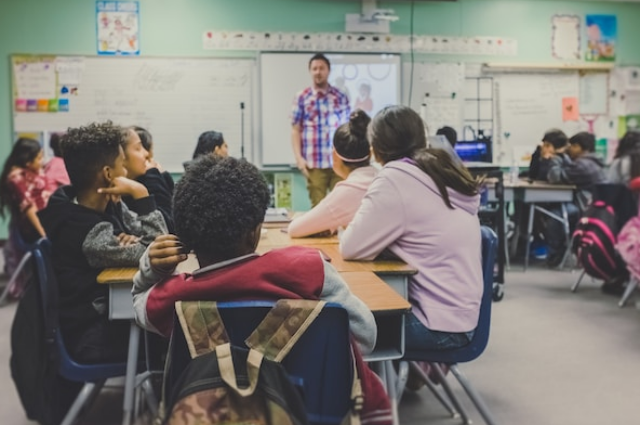
"We want education by which character is formed, strength of mind is increased, intellect is expanded and by which one can stand on one's own feet. Its making of a mankind. But pathetically our education system is not providing self-confidence nor self-esteem. Neither the individual is able to stand on one's own feet." - Swami Vivekananda.
Holistic approach is trending in India. Education needs to emphasise on concept-based learning that is 'learning by doing'.
Major challenges in India
India ranks 33 in the world and the quality of education is rated as 59.1.
The biggest challenges faced by a student include finance (cost of education), financial security, access to education (mostly the rural areas and the poor) academic stress due to education, living environment, unsafe exposure to media, unsafe societies, mental health, and wellness, work-life balance and confidence to make and be responsible for decisions.
Apart from these, we have political interference, poor governance, poor infrastructure, mushrooming of institutions, domination of corruption in educational sectors, inadequate research and funds, no regulations for private institutions, and the upper hand of the private sector in the education system. Lack of applied learning and non-guarantee of graduate employment finds no meaning in getting an education.
Reasons for the declining quality of education in India:
- Lack of trained knowledgeable teachers.
- Rote learning and memorising are dominating Indian classrooms.
- Classrooms are teacher-centred.
- Poor quality education does not encourage the freedom of thoughts or ideas of children leading to poor learning outcomes.
- Course completion only matters.
- Stress in education is pushing children out of the education system.
- Child labour, abuse, and violence are ill effects of education making children vulnerable to different sites of crime.
- Proper infrastructure in higher education is lacking leading to deficient skills in learning.
- Higher education does not focus on research and innovation.
- Political system is gaming with higher education.
- Privatisation of education has failed to check the soaring fee and cost of textbooks and other resources of education.
- Salaries are paid in meagre amount to teachers.
- Lack of motivation in students and teachers.
- Lack of necessary training and upgradation of skills for teachers.
- Lack of personality training and tests for teachers.
- No proper pay scales for teachers - an important criteria for not choosing the teaching profession by youngsters and also hampers dedication to teaching.
- Merit is judged by only the exam system (paper-pen mode).
- Lack of funds and inconsistent government policies.
- Ego of states and their languages.
- Education is even ruled by religious instructions.
- Vested political motives.
- Lack of teamwork.
- Lack of cooperation and interaction between industries and educational institutions.
- Extreme poverty or lack of schooling.
- Irresponsible guardians/parents.
- Gender, religion, and language discrimination also keep millions of children out of school, etc.
- University education lacks trade or technical skills.
- We focus on degrees, not on knowledge or content what one holds.
- Education is just academic inflation.
- Lack of sports and extracurricular activities.
- Lack of proper schools.
- Education has become luxury and unaffordable to most.
- Challenges in education can be economic, geographical, or social in nature.
- Severe climatic conditions and lack of proper transport are also blocks to quality education.
- Poor sanitation and inadequate teaching materials.
- Deteriorating 'psycho-physical health' for both teachers and students.
Effects of poor education:
- It can pose a major barrier to employment.
- Earning potential reduces.
- Unable to shape their future.
- Making children vulnerable to child labour, abuse, and violence.
- Children turn dangerous to societies.
- Poor decision-making.
- Life skills are blocked.
- Affects physical and mental health.
- Poor work.
- Creates a vicious society.
- Higher crime rates.
- Unhealthy behaviors.
Why is quality education important?

- For peaceful and happy societies.
- Countries' progress depends on quality.
- Can create better opportunities for better health.
- It can reverse casualties and risks.
- Community life improves.
- Children can be taught to engage socially.
- Freedom of voice can be enjoyed.
- Learning becomes happier.
- Reduces stress and health-related stress.
- Creates high self-esteem and induces a sense of control over life.
- Social and psychological skills enhanced.
- Promotes healthy lifestyles and healthy behaviors.
- Teachers gain back their respect as described in the Vedas.
- Creates better employment opportunities.
- People of all age groups can show concern for the environment. A greener world can be seen.
- ENVIRONMENTAL PROBLEMS CAN BE SOLVED AND EASILY HANDLED.
- Sustainable development becomes an easy task.
- Boosts economic success.
- Ethical societies and happier societies can be viewed.
- War and disease can be seen only in the dictionary.
- Social media will be qualitative.
How can we better the quality of education?
- Maintain proper infrastructure.
- Encourage community participation in educational sectors.
- Involve teachers while planning education.
- Pedagogy skills need to be emphasised.
- Assessment and evaluation tools need proper planning and execution.
- Testing skills of children in various fields.
- Textbooks have to be updated and the curriculum needs to be revised.
- Teachers must be trained with the modern syllabus.
- Include extracurricular activities.
- Find ways to retain the best Teachers in school.
- Provide proper pay scales for teachers.
- PPP Model (Public Private Partnership must properly be monitored)
- Self-evaluation of teachers.
- Teaching is not just a job.
- Bring technology not to replace teachers but to help the teaching-learning process.
- Make learning place a happier place.
Quality of education is definitely reflected in families and societies.
A healthy mind is a healthy person. This is only created by 'Quality Education '.
It's a world emergency.
. . .
References:
- www.unicef.org
- unesco reports on education.
- http//societyhealthvcu.edu
